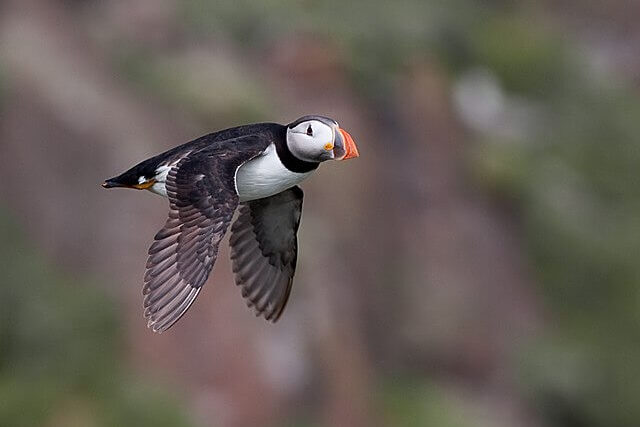
The most extensive seabird census conducted to date reveals that over the past two decades, more than half of the seabird species breeding on British and Irish coasts have experienced declines.
The Seabirds Count survey, covering the period between 2015 and 2021, notes declines in 11 out of 21 nesting seabird species, stability in five species, and increases in five species, partly attributed to targeted conservation efforts.
The British and Irish coasts are globally significant for seabird populations, hosting the majority of the world’s nesting Manx shearwaters, northern gannets, and great skuas, along with over half of the north Atlantic populations of lesser black-backed gulls and common guillemots.
The survey identifies various factors contributing to declines, including climate change impacting food availability and nesting sites through increased storminess, commercial fishing depleting fish populations, and predation by invasive mammals like brown rats.
Notable declines include a 49% reduction in common gull numbers due to habitat loss and reduced food for coastal-nesting birds. Puffin populations have also decreased at many surveyed sites, with global vulnerability recognised, particularly in British and Irish waters where sand eels, a crucial food source, are declining. The roseate tern population, however, has surged by 152%, a success attributed to nest site protection and predator control.
Regional variations are evident in Scotland, where 14 of 20 breeding seabird species are declining, while in England, eight species increased, six declined, and five remained stable. In Wales, 11 species increased, and six declined, while in Northern Ireland, seven increased, and four declined. The Republic of Ireland coastline stands out positively, with 15 species increasing and only two declining.
The census, led by the Joint Nature Conservation Committee with over 20 partner organisations, underscores the urgent need for targeted conservation measures to reverse seabird declines and preserve the unique ecological significance of these coastal regions.
“Seabirds are sentinels for the health of marine ecosystems, highlighting action that needs to be taken to recover the marine environment,” said Gemma Harper, the chief executive of JNCC. “Loss of biodiversity is weakening the ability of the marine environment to withstand disturbance, adapt to and mitigate the impacts of climate change, and is affecting the ability of our seas to supply critical services for society.”
Beccy Speight, the chief executive of the RSPB, said: “For decades, our seabird populations have been battered by the impact of humans, from the introduction of predators to islands that destroy nests and chicks to the increasing effects of climate change that are impacting the availability of their food such as sand eels.
“The evidence shows that conservation efforts and smart policies do work and help increase the resilience of our seabirds to better weather whatever new storm is on the horizon.”
——————————————————————————
At Natural World Fund, we are passionate about stopping the decline in our wildlife.
The decline in our wildlife is shocking and frightening. Without much more support, many of the animals we know and love will continue in their decline towards extinction.
When you help to restore a patch of degraded land through rewilding to forests, meadows, or wetlands, you have a massive impact on the biodiversity at a local level. You give animals a home and food that they otherwise would not have had, and it has a positive snowball effect on the food chain.
We are convinced that this is much better for the UK than growing lots of fast-growing coniferous trees, solely to remove carbon, that don’t actually help our animals to thrive.
This is why we stand for restoring nature in the UK through responsible rewilding. For us, it is the right thing to do. Let’s do what’s right for nature!
Donate today at https://naturalworldfund.com/ and join in the solution!

